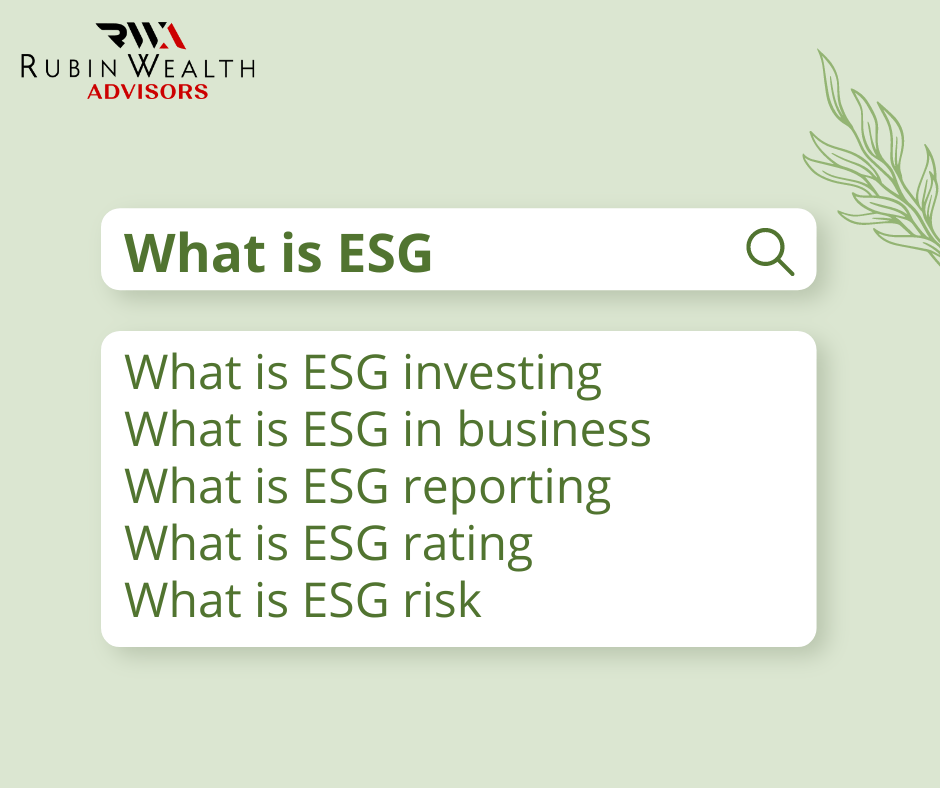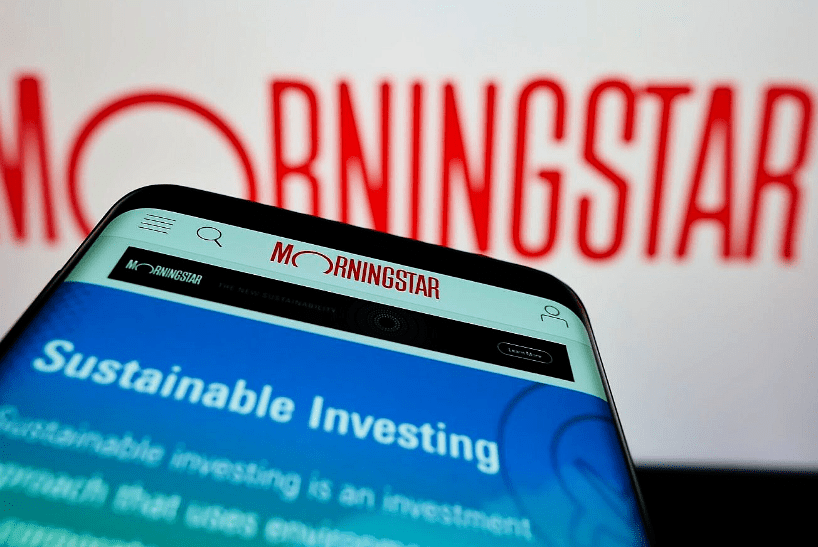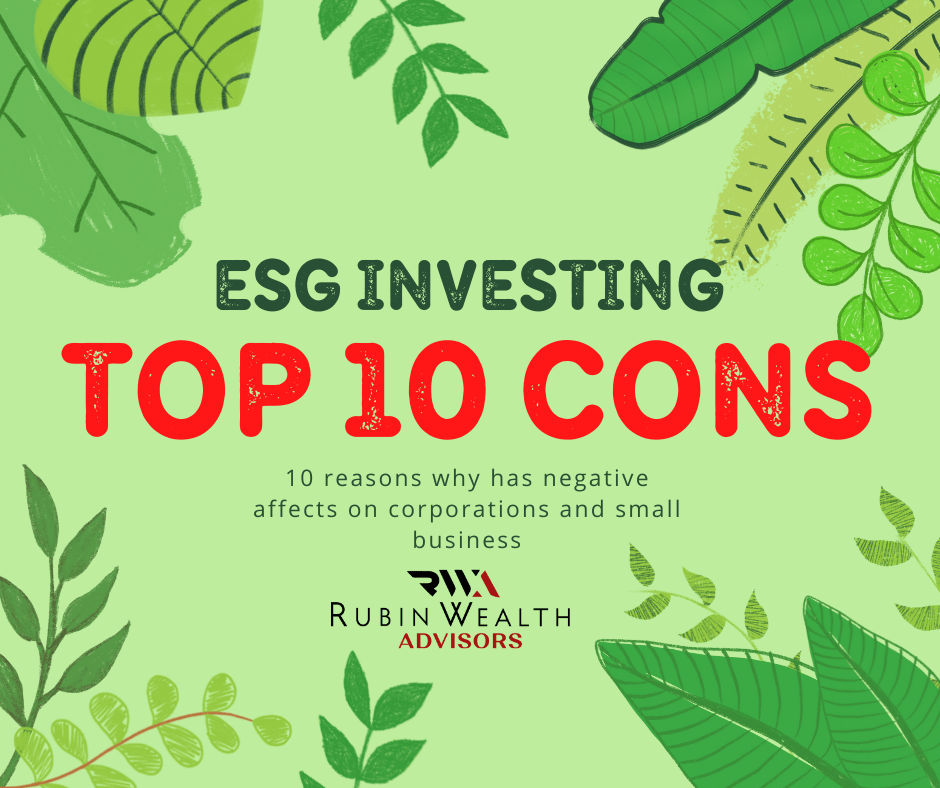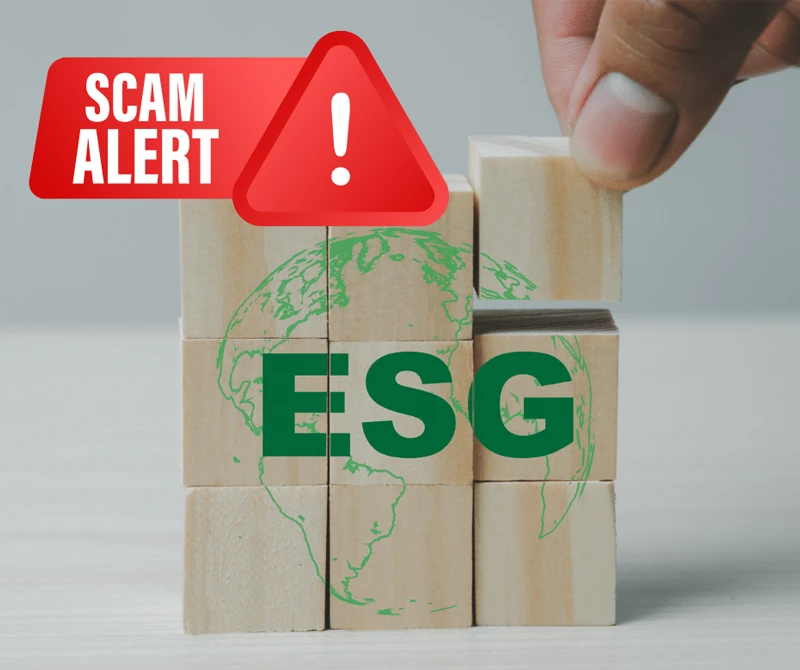What Is Environmental, Social, and Governance (ESG)?
/in Uncategorized /by Bob Rubin
Investors, regulators, customers, and other stakeholders can evaluate a company’s environmental, social, and governance efforts based on measurable metrics. These metrics include the organization’s ability to assess risks and govern the organization transparently and its ability to support various communities.
A company should be able to demonstrate its commitment to these endeavors by analyzing its ESG. Depending on their industry and company, companies collect ESG data using guidelines or frameworks they believe are the most appropriate and relevant.
For example, retailers could assess, monitor, and engage their supply chain vendors as part of an ESG framework. “Retailers have global supply chains, and social media can be used to highlight risks or erode consumer trust. In a report, the National Retail Federation trade group stated that consumers, investors, and regulatory authorities expect retailers to mitigate ESG risks throughout their supply chains.
By comparing ESG data over time, companies can see if they have improved in their focus areas and how they compare to their peers. The information can then be shared as deemed appropriate by organizations. The data can then be shared as deemed appropriate by organizations.

Many choose to provide the data to ESG rating agencies, which can rate companies based on their research, whether or not a company has provided them with their ESG data. A company can use an ESG rating agency – for example, MSCI ESG, Institutional Shareholder Services ESG, and Morningstar Sustainalytics. Some ESG rating agencies use a numerical rating system, while others use a letter grade system.
Fund managers and others seeking to invest in companies with high ESG metrics will often turn to these rating agencies to see where an organization ranks before investing in them.
Companies, in a move to be transparent and hold themselves accountable, can also share this information with the public, ranging from employees to customers. Some companies will go as far as publicizing the release of their ESG report versus quietly posting it, especially if the results are promising.
ENVIRONMENTAL, SOCIAL, AND GOVERNANCE VS. CORPORATE SOCIAL RESPONSIBILITY
Due to investor demand for quantitative data to compare companies, ESG was created as a qualitative concept in contrast to corporate social responsibility. CSR covers areas such as diversity programs or green efforts a company has underway, Christine DiBartolo, senior managing director and Americas head for FTI Consulting’s corporate reputation practice, told Built In.
“You need both. There isn’t one versus the other. ESG is data-driven, disclosure-oriented, and quantitative metrics around those three areas, whereas CSR is the programs and engagement you have around some of those same issues,” she said.
For example, a company may measure the diversity among its workforce as part of its ESG data gathering and sponsor workshops on combating cultural and racial biases as part of its CSR strategy.
Investors are now demanding the ESG component.
If you’re more interested in achieving financial gains instead of perpetuating underperforming woke strategies, call Rubin Wealth Advisors to speak to a professional with the same moral values as you.

Are you concerned about inflation, ESG compliances, and the 2022 crypto crash?
Your investment portfolio can be affected by any or all of these factors.
Schedule an appointment with Bob Rubin, your dedicated, conservative financial advisor, for a free portfolio analysis today.
Get started by clicking the button below.
Follow us on Social Media
Related Articles
No BS… Just straight forward advice
Contact Bob, the Nation’s Predominant
Politically Conservative Financial Advisor Today!






